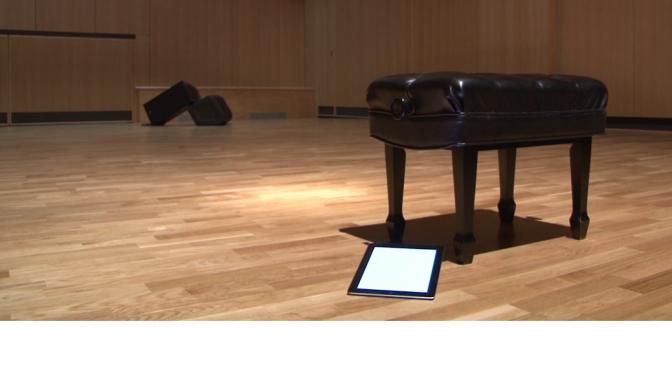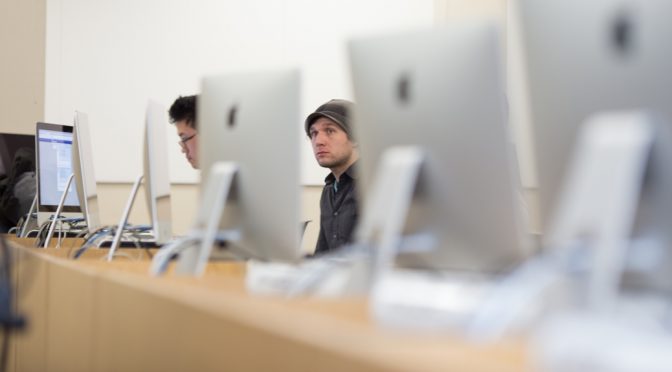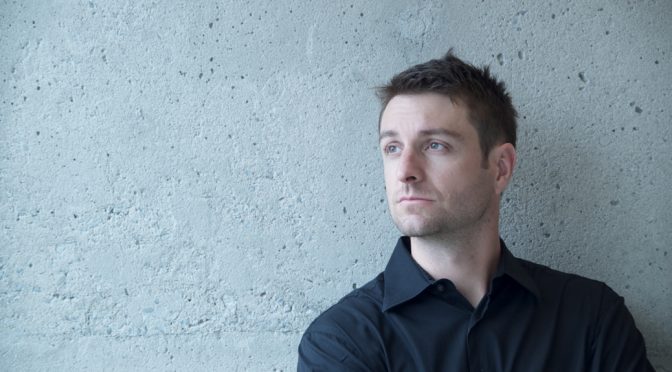My compositional activities centre on contemporary art music and composing instrumental music, musique concrète, acousmatique musique, music with live electronics and for innovative digital musical instruments. My expertise in classical acoustic compositional practice merges with my proficiency in electronic music, as a result. Traditional aspects of melody, harmony and rhythm are redeployed in relation to frequency, spectra and behavioural characteristics of the wide open sound world of electronics. My compositional projects of the last twenty years attest to my interest in blending acoustic instrument and electronic music composition.
All posts by D. Andrew Stewart
Computer music and teaching
A passion for active engagement, while making music with technology, is at the heart of my teaching strategies and is one strength to which students respond favourably. My performance career as a stage musician includes performing with sensor-based devices and requires a thoughtful approach to physical gestures and expanded movements, providing concrete examples of the effort and energy I value in an active engagement with musical materials. Communicating the significance of active music-making in the technology-intensive classroom requires innovative strategies in an effort to draw students away from visual barriers (e.g., large computer screens). For example, one of the strengths of my teaching is the ability to identify links between computer-centred activities and an engagement with the physical sound world, which requires multimodal sensory interactions far beyond what is needed to manipulate a computer keyboard. I use both traditional interactive teaching strategies (e.g., allowing students to offer creative solutions to class exercises and assignments by engaging with each other orally not mediated through a computer) and techniques only made possible via technology (e.g., requiring students to manipulate a complex and holistic system of control parameters with sensors in an effort to create tangible sound results).
The general themes of the subject-matter I teach include: acoustic and electroacoustic music composition; contemporary music theory; music technology, especially with respect to performing with gestural controllers; interactive computer music; computer-assisted composition; applied research in the digital audio arts; music industry and business.
Digital music instrumentalist
My performance career as a digital musical instrumentalist began in 2000 and has included performances on commercially available and newly developed digital control surfaces such as the t-stick, karlax, méta-instrument, sonic jumper, wii remotes, kinect, hand sonic, rulers, among others. Most notably, I have made strides in the development of electronic music performance practices as the co-creator of the t-stick (Malloch and Stewart, 2006). My numerous compositions and concert performances are indicative of these practices. Performances that I am proud of – and in which I showed an aptitude for improvisation include concerts with Tim Brady (electric guitar), Salvador Torre (bass flute), Terri Hron (recorder), and Ensemble In Extensio (clarinet and percussion).
Biography
D. Andrew Stewart is a composer and digital musical instrumentalist. A convergence of acoustic and electroacoustic instrumental praxis is at the centre of Stewart’s oeuvre.
His music is dedicated to exploring composition and performance for new interfaces for musical expression by adapting and evolving traditional praxis.
Stewart’s work asks whether musical idea – concept, theory, material, technique and means – has kept pace with developments in digital lutherie; furthermore, what are the essential constituents for creating a viable digital instrument for the twenty-first century performer.
Stewart has contributed to the field of music technology through his demonstrations at: the International Conference on New Interfaces for Musical Expression (NIME), International Computer Music Conference / International Computer Music Association (ICMC/ICMA), International Conference on Live Coding, International Web Audio Conference, Electroacoustic Music Studies Network, Electronic Music Foundation, ACM SIGCHI Conference on Human Factors in Computing Systems, International Music-Gesture Conference, Society for Music Theory, Guthman Musical Instrument Competition, Congrès de l’Association francophone pour le savoir and The international Improvisation, Community, and Social Practice research project.
Andrew Stewart’s music has been featured in countries such as: The UK, The Netherlands, Switzerland, The Czech Republic, Poland, The United States, Germany, France, Mexico, Argentina, Norway, Denmark, Austria, Italy, The Republic of Korea, China, and his home country of Canada.



